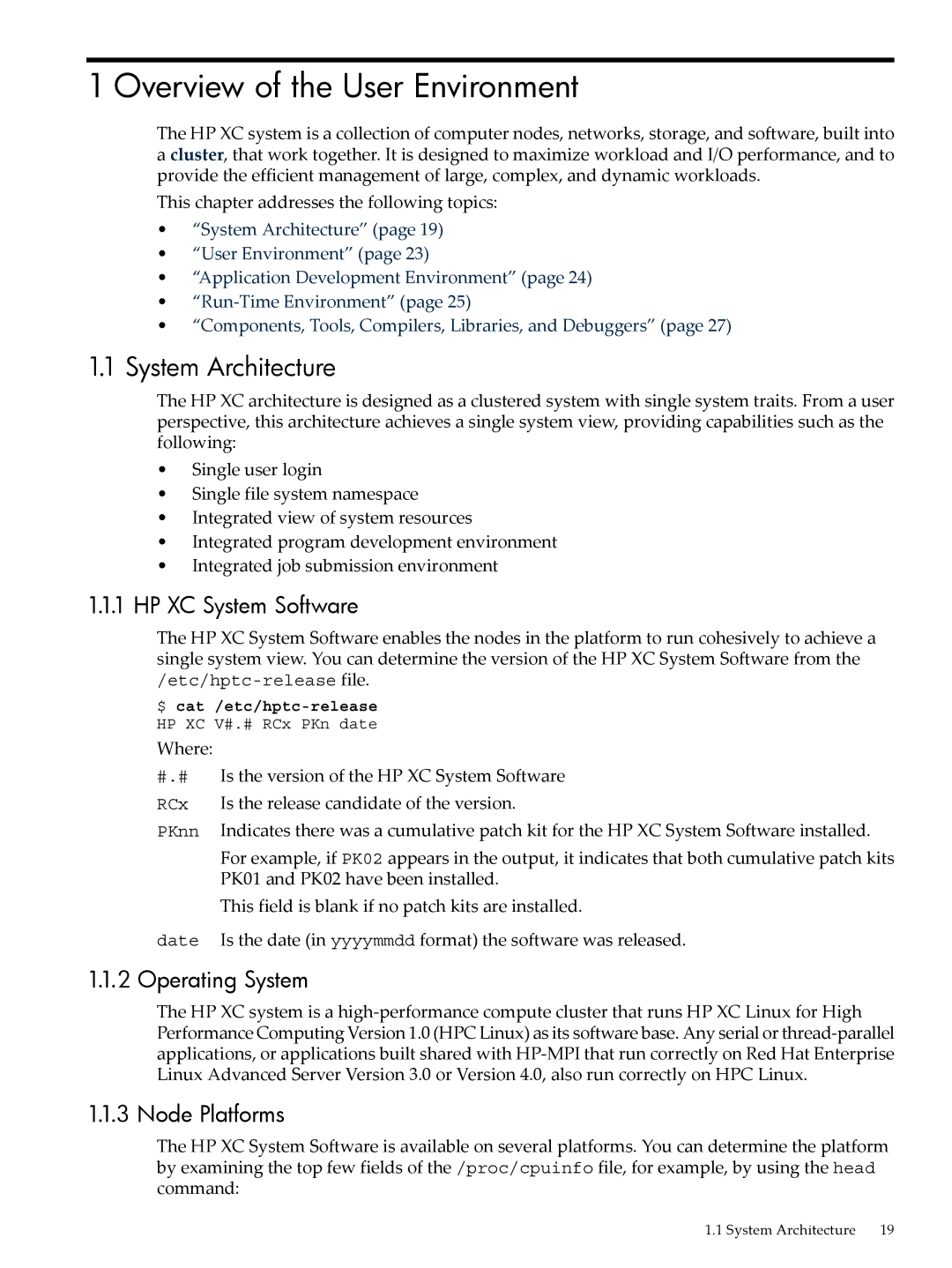1.1.2 Operating System
The HP XC system is a high-performance compute cluster that runs HP XC Linux for High Performance Computing Version 1.0 (HPC Linux) as its software base. Any serial or thread-parallel applications, or applications built shared with HP-MPI that run correctly on Red Hat Enterprise Linux Advanced Server Version 3.0 or Version 4.0, also run correctly on HPC Linux.
1.1.3 Node Platforms
The HP XC System Software is available on several platforms. You can determine the platform by examining the top few fields of the /proc/cpuinfo file, for example, by using the head command:
1.1 System Architecture 19
date
For example, if PK02 appears in the output, it indicates that both cumulative patch kits PK01 and PK02 have been installed.
This field is blank if no patch kits are installed.
Is the date (in yyyymmdd format) the software was released.
Indicates there was a cumulative patch kit for the HP XC System Software installed.
Is the release candidate of the version.
#.# Is the version of the HP XC System Software RCx
PKnn
1 Overview of the User Environment
The HP XC system is a collection of computer nodes, networks, storage, and software, built into a cluster, that work together. It is designed to maximize workload and I/O performance, and to provide the efficient management of large, complex, and dynamic workloads.
This chapter addresses the following topics:
• “System Architecture” (page 19)
• “User Environment” (page 23)
• “Application Development Environment” (page 24)
• “Run-Time Environment” (page 25)
• “Components, Tools, Compilers, Libraries, and Debuggers” (page 27)
1.1 System Architecture
The HP XC architecture is designed as a clustered system with single system traits. From a user perspective, this architecture achieves a single system view, providing capabilities such as the following:
• Single user login
• Single file system namespace
• Integrated view of system resources
• Integrated program development environment
• Integrated job submission environment
1.1.1 HP XC System Software
The HP XC System Software enables the nodes in the platform to run cohesively to achieve a single system view. You can determine the version of the HP XC System Software from the /etc/hptc-release file.
$ cat /etc/hptc-release HP XC V#.# RCx PKn date
Where:
